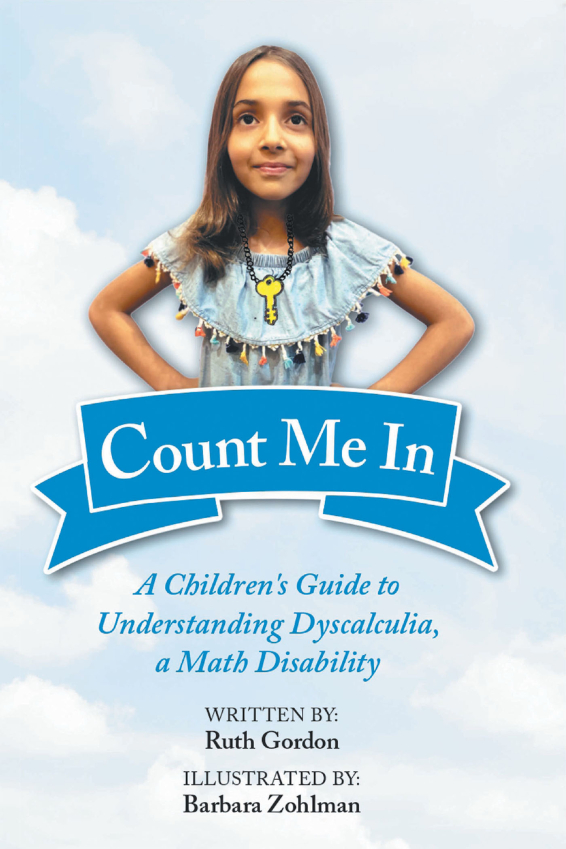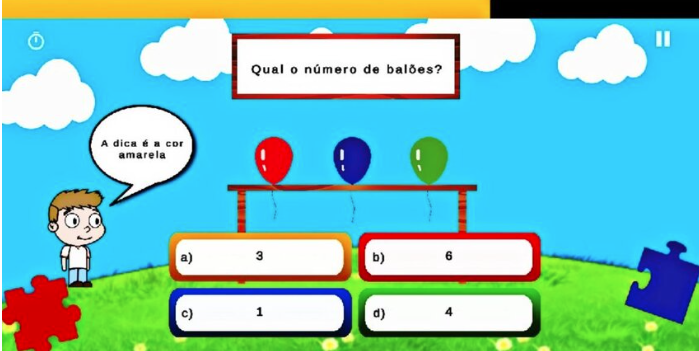Adaptive learning – the superhero of modern education, the X-Men of the classroom, the Batman of academic success! Okay, maybe that’s a bit over the top, but let’s face it: adaptive learning is pretty awesome. It’s like having a personalized tutor for every student, working tirelessly to ensure that they’re getting the instruction they need, when they need it, and at the right level of difficulty.
Gone are the days of one-size-fits-all education, where students either sink or swim in a sea of standardized tests and generic lesson plans. Adaptive learning is the key to unlocking each student’s full potential by providing them with customized instruction and tools that cater to their unique learning style, strengths, and weaknesses. It’s like having a genie in a bottle, but instead of granting wishes, it’s granting knowledge and skills.
So buckle up, fellow educators, because adaptive learning is taking the world by storm, and it’s time to join the revolution. Say goodbye to outdated teaching methods and hello to the future of education, where every student has the chance to shine.
Revolutionizing education: The vital significance of adaptive learning
Adaptive learning[1] is a pedagogical methodology that emphasizes the importance of personalized instruction, enabling learners to receive tailored content and delivery based on their individual needs and abilities. This student-centric approach has shown remarkable promise in the educational domain, as it seeks to address the limitations of traditional classroom instruction, where the one-size-fits-all model has proven to be inadequate for many learners.
Through the merger of adaptive learning and game-changing technology, education is all set to be revolutionized. It is a personalized learning approach that tailors educational content and delivery to each individual learner’s needs and abilities. This means that students can learn at their own pace, receive customized feedback, and have a greater degree of control over their own learning experience.
The significance of adaptive learning lies in its ability to provide educators with an unprecedented level of insight into student performance, allowing them to identify knowledge gaps[2] and tailor instructional content to meet individual learning needs. This personalized approach to learning has been shown to increase student engagement, motivation, and ultimately, knowledge retention.
The science behind adaptive learning is based on the concept of machine learning, which involves the use of algorithms to analyze data and identify patterns. By tracking a student’s progress and performance, an adaptive learning system can adjust the difficulty level of the material, offer personalized recommendations, and provide targeted feedback. This can lead to better learning outcomes, increased engagement, and improved retention.
Adaptive learning also fosters creativity in education. By freeing up teachers from the traditional role of delivering content and assessing performance, they can focus on more creative and innovative approaches to teaching. This can include more project-based learning, collaborative learning, and opportunities for critical thinking and problem-solving.
In conclusion, the vital significance of adaptive learning lies in its ability to personalize education, improve learning outcomes, and foster creativity in teaching. As technology continues to advance, it is essential that we embrace and integrate innovative approaches like adaptive learning to meet the evolving needs of learners in the 21st century. So, below are some student-friendly platforms to smoothly integrative adaptive learning in the classroom.
Examples of how adaptive learning has been adapted to help students and teachers
Adaptive learning is an exciting approach to teaching that provides teachers with a wealth of opportunities to engage and challenge their students in innovative and creative ways. Summarized below are some examples of platforms that provide educators with all the required tools and resources to adapt to students’ diverse needs.
1. Edmentum
Step into the world of Edmentum, a personalized learning experience that helps K-12 students achieve their academic goals. Edmentum is an adaptive learning platform that uses data analytics to identify gaps in student knowledge and provide targeted instruction to address those gaps.
Edmentum’s adaptive learning technology assesses each student’s mastery of key concepts and adjusts the content and difficulty level of the lessons accordingly. This ensures that every student is challenged at the appropriate level and receives instruction that is tailored to their individual needs.
What sets Edmentum apart is its ongoing assessment and feedback system. Students receive timely feedback on their progress, which helps them stay motivated and focused on their learning goals. With access to a wide range of resources and personalized instruction, students can improve their academic performance and achieve their full potential.
2. DreamBox
Welcome to the magical world of DreamBox Learning, where math education becomes an adventure. DreamBox Learning is a cutting-edge adaptive learning software platform that is designed to help students in kindergarten through eighth grade learn math at their own pace.
With personalized instruction, engaging game-based learning, and real-time data analytics, DreamBox Learning is like having a personal math tutor at your fingertips.
The software’s adaptive learning technology assesses each student’s understanding of math concepts and adjusts the content and difficulty level of the lessons accordingly, providing a customized learning experience that meets each student’s individual needs.
DreamBox Learning’s game-based approach makes math fun and interactive, while real-time data analytics provide targeted feedback to help students improve their skills and achieve their learning goals. With DreamBox Learning, students can master the skills they need to succeed in more advanced math courses and become confident, lifelong learners.
3. Rosetta Stone
Rosetta Stone is an adaptive language learning software that uses speech recognition technology to provide students with immediate feedback on their pronunciation and fluency. The software also adapts the content and difficulty level of the lessons based on the student’s performance.
Rosetta Stone uses adaptive learning to assess each student’s language proficiency and adjust the content and difficulty level of the lessons accordingly. The software provides interactive exercises that help students to practice their language skills in context and also provides personalized feedback to help students improve their pronunciation and fluency. This helps to ensure that students are learning a new language in a way that is engaging, effective, and tailored to their individual needs.
4. Achieve3000

Achieve3000 is an adaptive reading program that provides differentiated instruction for students at all grade levels. The software analyzes student reading levels and adjusts the content and difficulty level of the articles to match each student’s individual needs.
Achieve3000 uses adaptive learning to assess each student’s reading level and provide them with articles that are at an appropriate level of difficulty. The software also provides targeted instruction to help students improve their reading comprehension and vocabulary skills. This helps to ensure that students are not only reading at their own level but also developing the skills they need to become confident and proficient readers.
5. Smart Sparrow
Enter the world of adaptive learning with Smart Sparrow, a platform that empowers teachers to create personalized lessons that adapt to each student’s unique learning style and pace. Through the use of data analytics, Smart Sparrow delivers real-time feedback to both students and teachers on progress and performance.
Smart Sparrow’s adaptive learning technology provides an engaging and interactive learning experience that is tailored to each student’s individual needs. With personalized feedback and progress tracking, teachers can adjust instruction to help students stay on track and achieve their learning goals.
6. Knewton
Knewton is an adaptive learning platform that uses advanced data analytics to deliver personalized instruction to K-12 students. Knewton’s adaptive learning technology assesses each student’s understanding of key concepts and adjusts the difficulty level of the lessons accordingly, providing a targeted learning experience that helps students improve their skills.
With personalized feedback and targeted instruction, Knewton ensures that every student receives the support they need to succeed. With Knewton, students can unlock their full potential and achieve academic success.
7. Carnegie Learning

Carnegie Learning is an adaptive math learning software that uses real-time data analytics to provide personalized instruction for students in middle and high school. The software uses a combination of interactive lessons, practice exercises, and assessments to help students master key math concepts.
Carnegie Learning uses adaptive learning to assess each student’s understanding of math concepts and adjust the content and difficulty level of the lessons accordingly. The software also provides ongoing assessment and feedback to help students stay on track and achieve their learning goals. This helps to ensure that students are receiving instruction that is tailored to their individual needs, allowing them to learn more efficiently and effectively.
8. Lexia Learning
Lexia Learning is an adaptive reading software that provides differentiated instruction for students in K-12 education. The software employs real-time data analytics to identify areas where students need additional support and then provides targeted instruction to help students improve their reading skills.
Lexia Learning relies on adaptive learning to assess each student’s reading level and provide them with instruction that is at an appropriate level of difficulty. The software offers personalized feedback to help students stay on track and master key reading skills. This helps to ensure that students are not only reading at their own level but also developing the skills they need to become confident and proficient readers.
9. Quizlet

Quizlet is an adaptive learning platform that allows teachers to create customized study materials for students in K-12 education. The software uses data analytics to identify areas where students need additional support and then provides targeted instruction to help students improve their knowledge and understanding of key concepts.
Quizlet uses adaptive learning to assess each student’s mastery of key concepts and adjust the content and difficulty level of the study materials accordingly. The software also provides personalized feedback to help students stay on track and uses drill and practice approaches to help them master important skills. Thus, students can be assured of receiving instruction that is tailored to their individual needs, allowing them to learn more flexibly and efficiently. Furthermore, it is also one of the drill and practice websites.
10. Duolingo
Duolingo is an adaptive language learning software that provides personalized instruction for students of all ages. The software uses gamification and interactive exercises to help students learn a new language in a fun and engaging way.
Duolingo’s adaptive learning software is put to work to assess each student’s language proficiency and adjust the content and difficulty level of the lessons accordingly. The software proffers personalized feedback to help students improve their pronunciation and fluency. This helps to ensure that students are learning a new language in a way that is engaging, effective, and tailored to their individual needs.
Conclusion
Adaptive learning is a game-changer for modern education. By harnessing the power of data analytics and personalization, this innovative approach to teaching and learning has the potential to transform the way we educate our students. With the ability to assess each student’s individual needs, provide targeted instruction, and offer personalized feedback, adaptive learning has the capacity to level the playing field and ensure that every student has the opportunity to succeed.
Of course, like any new technology, adaptive learning has its challenges and limitations. It’s not a silver bullet solution, and it won’t solve every problem facing education today. But it’s a step in the right direction, a glimmer of hope in an often-overwhelming landscape.
References
- Herlo, D. (2018). ADAPTIVE LEARNING INFLUENCE IN EDUCATION. Journal Plus Education, 2, 142–151. https://www.uav.ro/jour/index.php/jpe/article/download/969/1027
- Liu, M., McKelroy, E., Corliss, S.B. et al. Investigating the effect of an adaptive learning intervention on students’ learning. Education Tech Research Dev 65, 1605–1625 (2017). https://doi.org/10.1007/s11423-017-9542-1




